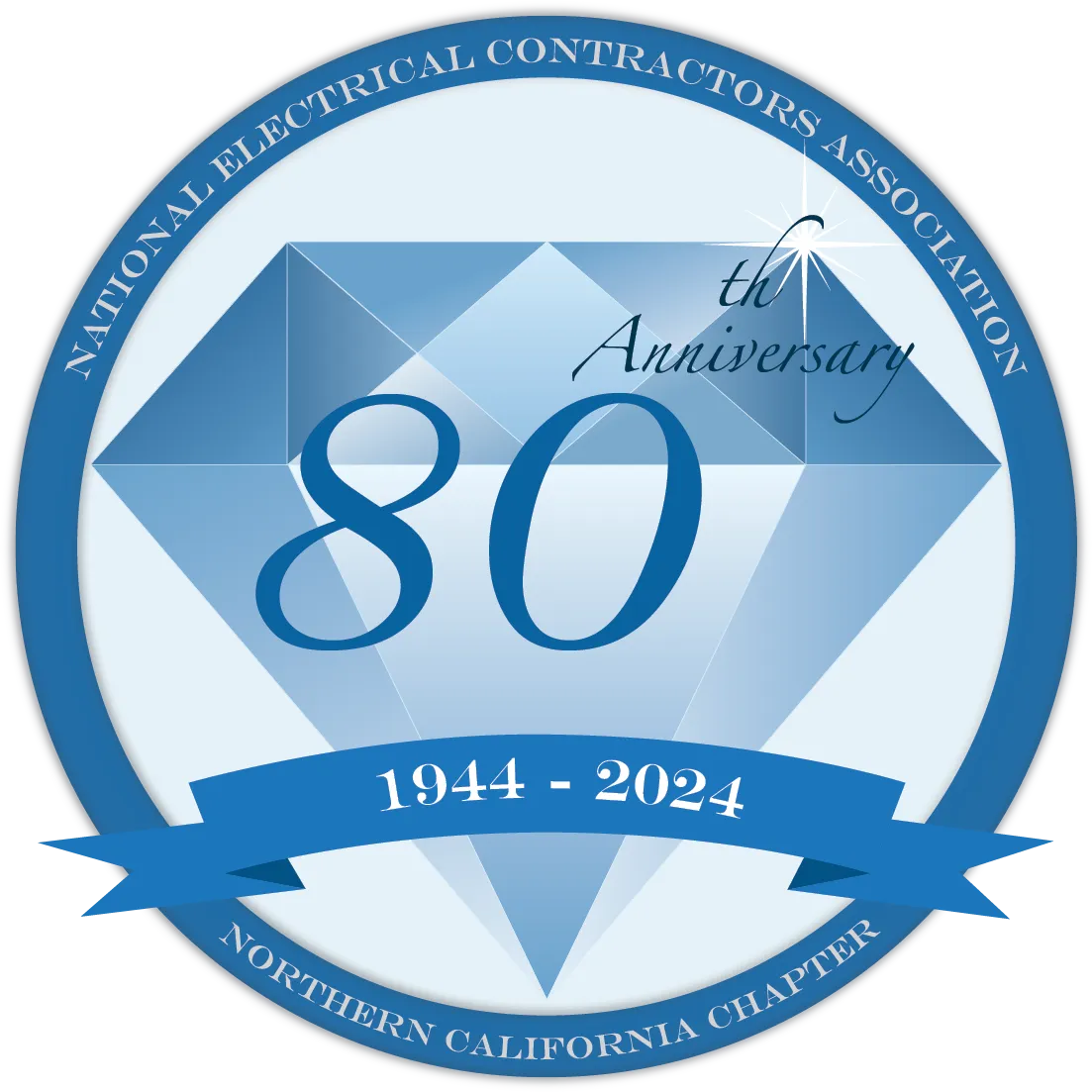Delays are aggravating. The rescheduled flight or late train causes frustration. Rising to the top of the list – the unfinished economic recovery from COVID-19. In 2021, strong fiscal growth paused due to the rapid spread of the delta and omicron variants. Added to that was pandemic-related fallout from a hampered supply chain and unexpectedly high inflation. While such variables continue to loom, indicators are showing a full economic recovery in late 2022. The construction industry will bounce back more slowly, but recent outlooks show gains in every sector. If patience is a virtue, we should reap its rewards this year. Read more about the 2022 Construction Outlook from Electrical Contractors magazine by clicking here.
Archives: NECA News
NECA News
Foreman’s Development Series
NorCal NECA is excited to provide foreman specific training through the Foreman’s Development Series (FDS). FDS consists of individual modules where foremen and journeymen have the opportunity to participate in an interactive learning atmosphere of teaching and discussion focused on industry “best practices.” This rigorous and robust multi-lesson education series replaces previously offered EPS and is designed to educate, excite and expand one’s knowledge. Participants can earn continuing education hours towards state certification while strengthening skill sets and learning from highly trained subject matter experts. Module descriptions and registration information can be found here. FDS modules are currently being offered in Stockton, Napa and Pleasanton. Please contact Jenny Fothergill with any questions.
NorCal NECA Holds Sporting Clay Classic
NorCal NECA held its annual Sporting Clay Classic on Friday, November 12, 2021, with a full field of participants. We would like to thank each of our valued partners and contractor members who sponsored the event, and those who participated in our raffle.
Congratulations to all our winners and especially Tim Maggiore for having the highest score at 96! We hope that you will consider joining us at Birds Landing next year.
Kurt Brinkman’s Academy Induction
On Sunday, October 10, 2021, during NECA 2021 Nashville, Kurt Brinkman was inducted into the Academy of Electrical Contracting. Fellowship in the Academy of Electrical Contracting is one of the highest honors bestowed upon an individual in the industry. The Academy honors outstanding leaders in the electrical contracting industry, as it preserves and utilizes their wealth of experience and knowledge for the benefit of the industry. Kurt has rendered exceptional service to the industry and NECA. Congratulations to Kurt Brinkman this great accomplishment!
NECA CEO Named to DOL’s Advisory Committee
David Long, NECA CEO, has been appointed to the US DOL’s newly reinstated Advisory Committee on Apprenticeship. The members of this committee provide advice and recommendations on issues related to Registered Apprenticeships.
The Advisory Committee will also promote greater awareness of the benefits of apprenticeships, foster increased alignment between apprenticeship opportunities and workforce and education systems, expand apprenticeships into new industries and occupations and ensure equity for under-represented populations.
NorCal NECA Sporting Clay Classic
Don’t forget to register for NorCal NECA’s annual Sporting Clay Classic benefiting the NorCal NECA PAC FPPC #960734. Registration is on a first come, first served basis.
- Date: Friday, November 12, 2021
- Location: Birds Landing Hunting Preserve
For more information on the event and sponsorship available, please click here.
Congratulations to Graduating Apprentices
Due to the ongoing COVID-19 Pandemic, the Solano/Napa Counties Apprenticeship made the tough decision to cancel their 2021 Apprentice Graduation Ceremony. Congratulations to each of the 2021 Solano/Napa JATC Graduates, and a special congratulations to Max Ripley who was selected as the 2021 Outstanding Apprentice of the Year. Mr. Ripley was awarded a $1,000 check from the Electrical Contractors Trust of Solano/Napa Counties.
The 2021 Inside Graduates are listed A-Z: Tre’Lucien Changeux, Joseph R. Chapin, Ghalee A. Grimes, Joel Hernandez, Tyler Needler, Caleb Ripley, Max Ripley, Jesus Segura and Eric Stobel.
Education Series for Small to Medium-Sized Contractors
To provide more resources for small and medium contractors, NECA has developed the Electrical Contractor Essentials course series. They are kicking off the program with a one-day virtual class, Electrical Contractor Essentials: Finance, Insurance and Legal. This class was designed specifically for NECA’s small and medium-sized contractors and will bring in experts to discuss the essential elements of finance, insurance and risk, and legal issues that all contractors need to know.
The class will take place on June 10, 2021, from 7:00 AM – 2:00 PM PST. The registration fee for NECA Members is $99 and participating attendees of this program will receive a $99 credit for the NECA 2021 Convention in Nashville.
Click here to register.
ELECTRI International Releases New Research Report
The electrical power industry is the backbone of America’s economic sector, supporting more than seven million American jobs. Considering how essential electricians are to society, it is not surprising that electricians’ employment from 2019-2029 is projected to have an eight percent growth rate, much faster than the average for all occupations.
However, it is widely recognized that the workforce shortage has been steadily increasing in the last few years and electricians are one of the top five most challenging craft positions to fill. Targeting young students and women represents one solid solution to the huge workforce shortage problem facing the industry. Researchers have suggested supplementing conventional recruiting and development methods with approaches that place more emphasis on creating active experiences that embrace state-of-the-art technologies.
This ELECTRI International study is the first effort to use immersive storytelling to attract candidates to the electrical trades using the virtual environment of real jobsites. This project introduces the Virtual Reality Electrician, a 360-degree immersive environment powered by virtual electricians to tell success stories of electrical trades and attract young students and women to join the industry.
Contact the Chapter office to receive a copy of this report.
Renewal Registration for Public Works Contractors
- Register for the first time
- Renew an active registration
- Reactivate a prior registration
- Securely pay the non-refundable $300 registration/renewal fee (and penalties if applicable)
